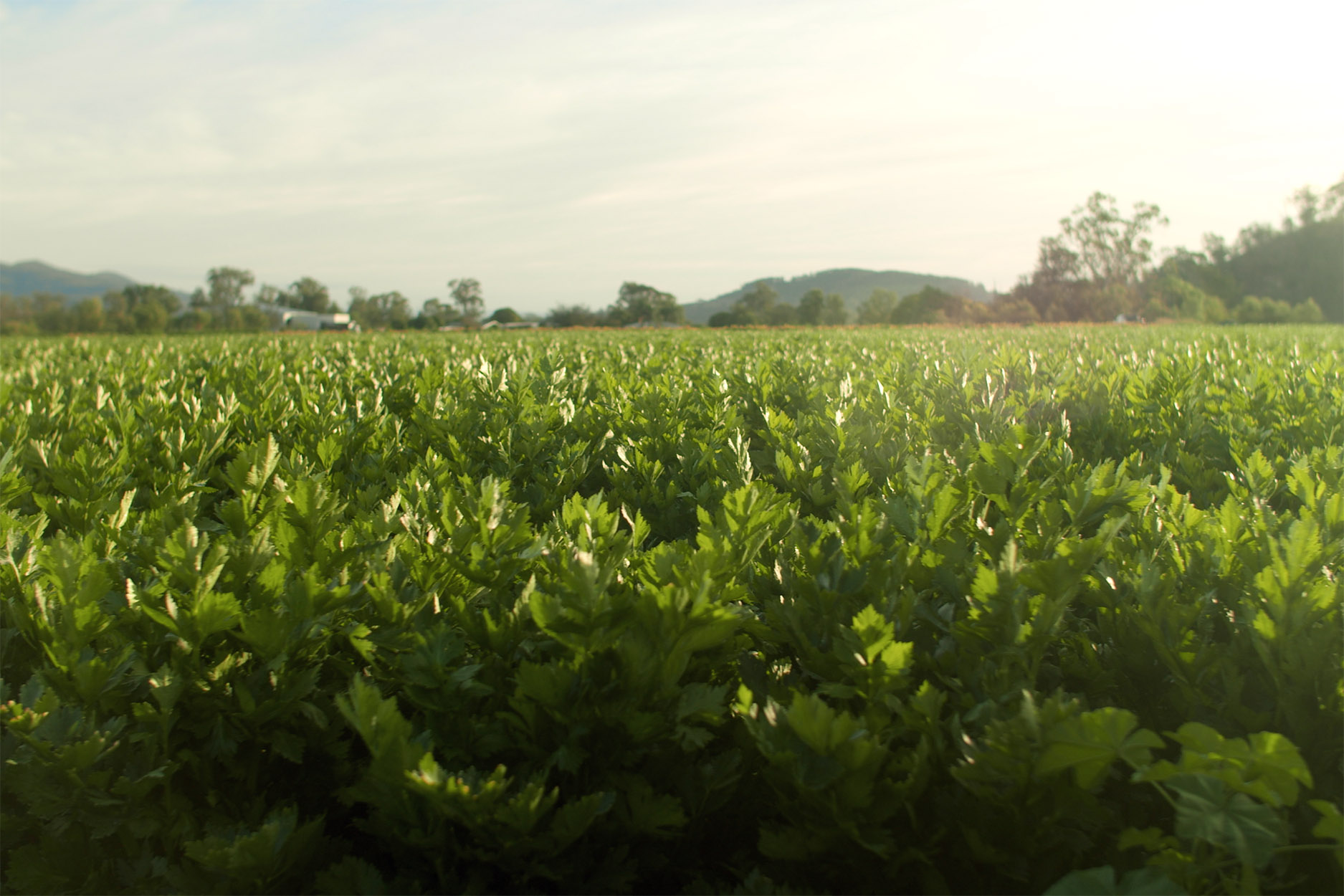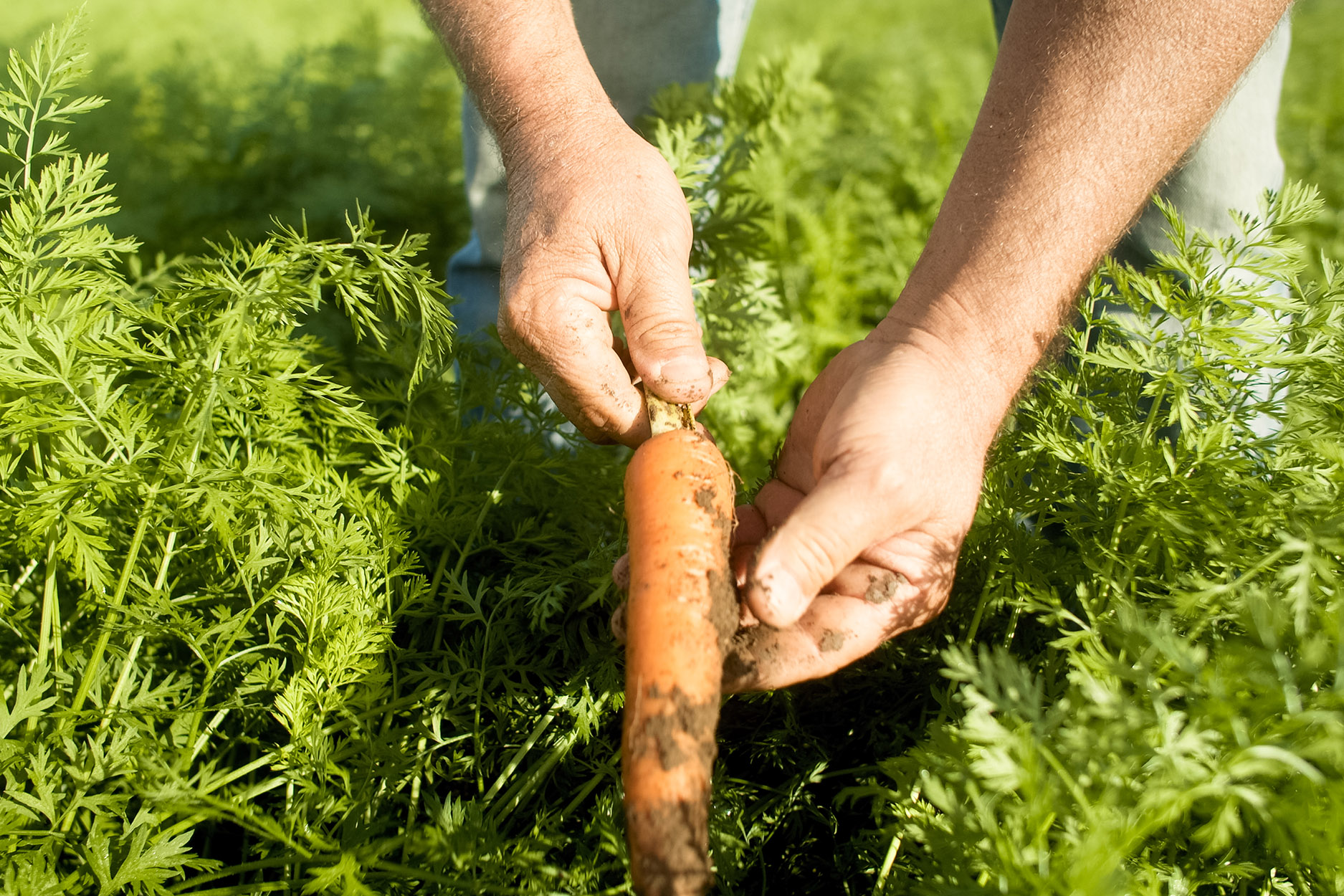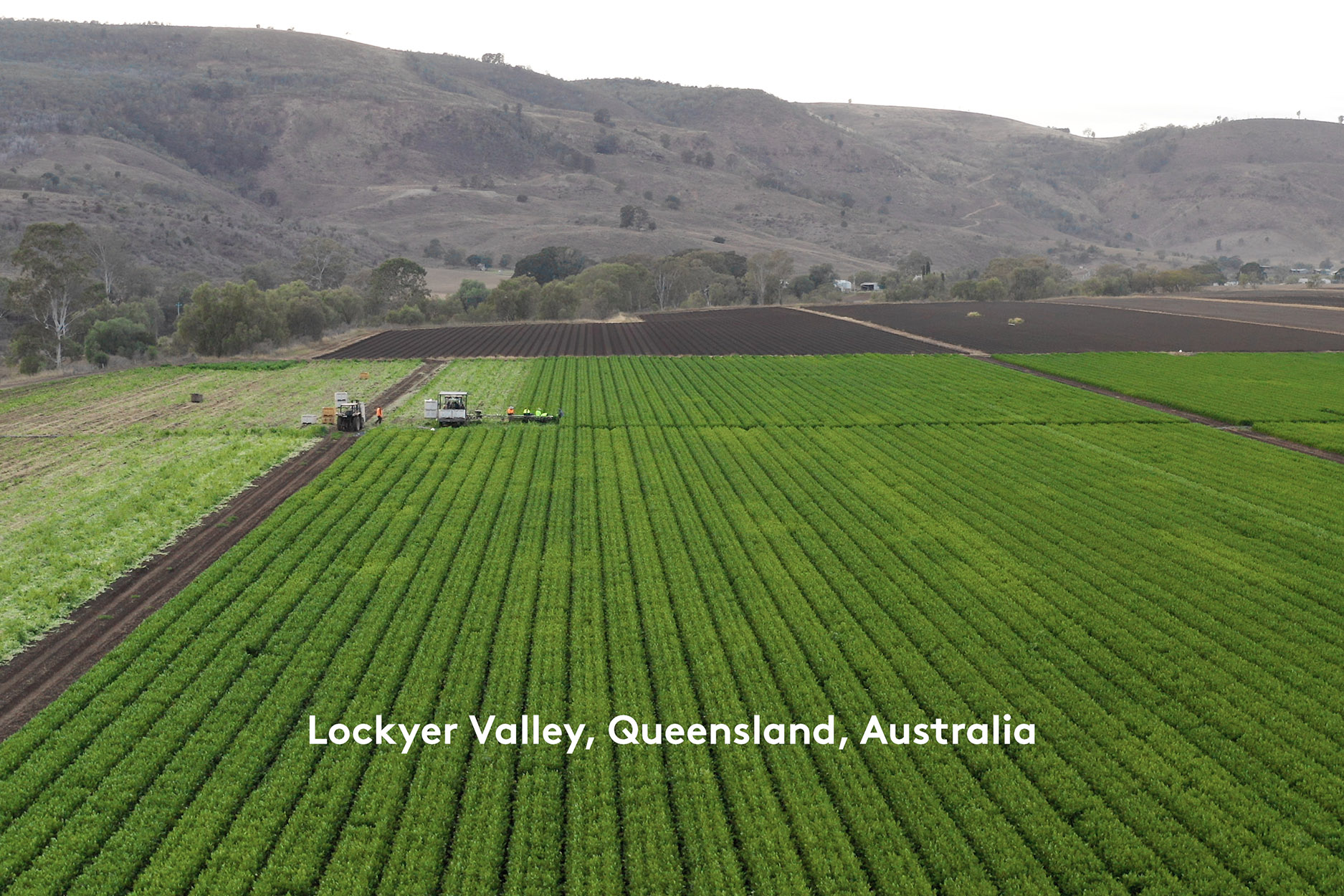How Organic Farming Benefits The Environment

Organic Farming Benefits
We believe in a sustainable and healthy future for all Australians — it’s the reason we’ve partnered with Australian organic farmers to create our range of fruit purees, soups and more! There are many reasons to buy organic but some of the most pressing are its benefits for the environment.
There is a huge range of benefits to organic farming, from soil health and reduced carbon emissions to cleaner waterways and improved biodiversity. There is so much to gain from supporting the growing community of Australian organic farmers, and everytime you buy Australian Organic Food Co. products, you’re doing your bit to help.
If you’re still on the fence about the benefits of organic farming, we’ve put together the top 6 to help you decide if going organic is right for you.
Saving The Bees
One unintended consequence of conventional farming methods that use chemical weedkillers and pesticides is what it’s doing to bee populations. Concerns around the decline of bee populations has been a huge environmental concern for some time now. It’s a complicated issue but some of the major contributors to their decline are the destruction of natural habitats, pests, disease and intensive farming practices. New research conducted by Trinity College Dublin and Dublin City University (DCU), shows that bees may be at risk of exposure to glyphosate in the EU. An active ingredient most commonly used in weed killers, glyphosate was found to have contaminated the nectar in unsprayed wildflowers. According to nutritioninsight.com, the researchers’ findings suggest that the presence glyphosate in unsprayed wildflower nectar, “could be attributed to spray drift, run-off, root uptake, environmental factors and agricultural practices.” While the intended purpose of glyphosate is to kill plants, it has been found to harm the digestive systems of honeybees and bumblebees, making them more vulnerable to infections. Bees are an integral part of our ecosystem –in Australia, two-thirds of all horticultural and agricultural crops reply on honeybees for optimal pollination according to science.org.au. Organic farming practises support biodiversity, and can give the bees their best fighting chance.
Improved Soil Health

One of the most serious hardships facing the agricultural industry in Australia and around the world is soil health. 95% of our food comes from the soil, yet industrial and chemical-heavy farming has depleted over a third of the world’s fertile soil. Conventional farming practices like mono-culture production (growing only one variety of plant) depletes necessary nutrients from the soil. It triggers a vicious cycle — the more unhealthy the soil, the more fossil fuel-based chemicals and synthetic fertilisers are needed to grow the same amount of produce. When it comes to organic farming, a few different methods are used to keep soil healthy. There’s crop-rotation, which is the practice of growing different crops on a piece of land one after the other. Some organic farmers use inter-cropping, where they grow different kinds of plants on the same plot of land at the same time, usually separated by space between the rows. In between harvest seasons, some organic farmers will plant cover crops to protect and enrich the soil.
According to the Food and Agriculture Organization of the United Nations (FAO) these and other organic farming practices encourage soil fauna and flora to flourish, improve soil structure and create more stable systems.

Clean Air and Climate Change
Healthy soil is home to a host of microbes which stimulate healthy plants, root growth and improve soil structure. They provide essential minerals and nutrients in a form that plant cells can consume. In return, plants photosynthesize carbon, converting it to complex organic molecules that feed microbes.
Healthy soil acts as a carbon reservoir by drawing carbon down into the soil to store it. Micro-organisms convert this into the nutrients we find in our food. Without a diversity of microbes, soil lacks the ability to absorb carbon and recycle it into necessary nutrients for plants.
Drought Resistance
Healthier soil structure and protective practices like cover crops have the added benefit of reducing soil erosion. According to the FAO, biodiversity decreases and nutrient losses increase the longer the soil is exposed to erosive forces (like heavy rain and wind). Reducing erosion effectively improves the productivity of soil. With healthy soil, microbes can thrive and assist a plant’s ability to tolerate stress and increase its ability to withstand disease and weather. Even better still, with healthy soil structure, water is reserved for drought periods.

Clean Waterways
The conventional farming practice of over-tilling soil is disruptive and damaging to soil structure and composition. It leads to erosion and runoff, and a general decrease in water absorption. What often happens here is that water drains through the unhealthy soil, picking up synthetic chemicals as it goes. This contaminated runoff kills marine life, animals and plants.
With organic farming, the use of synthetic fertilizers are prohibited and replaced with green options like compost, animal manure and green manure. Harmful chemical pesticides are also prohibited and are replaced by organic-approved pesticides and natural remedies like predatory insects, like ladybirds, lacewings and wasps, which help keep control of pests that can destroy crops. Not only does organic farming replace the synthetic pesticides and fertilizers traditionally used in conventional with greener options, it also produces healthy carbon-rich soil which is able to act as a sponge and absorb and retain water. This keeps water runoff and soil erosion to a minimum. According to the FAO, well-managed organic systems with better nutrient retention greatly reduce the risk of groundwater pollution.
Humane Animal Treatment
When an Australian farmer becomes a certified Australian organic producer, they adhere to certain organic farming principles, which ensure the humane treatment of animals within their care. When it comes to organic farming, livestock must be enabled to perform all of the natural social and physical functions relevant to their species and breed. Farmers must provide their livestock with quality of life and make sure they have access to healthy food and safe conditions. There are also protections for animal growth and development – that means organically farmed livestock are protected from harmful practices like force feeding or other artificial growth tools, which are common in conventional farming methods around the world.
Promote Biodiversity

The absence of chemical pesticides in organic farming creates a habitat for wildlife to thrive both within the soil and above it. Crop rotation and cover crops promote soil health, which in turn enables those symbiotic microbes we mentioned earlier to flourish. This foundation helps local flora and fauna to thrive, including pollinators and predatory insects that support organic growing systems. According to The Soil Association UK, studies have shown that organic farming significantly supports biodiversity, with up to 50% more plant, insect and bird life found on organic farms.
At Australian Organic Food Co, we have steadily built a network of farmers who are working with us to benefit the environment. Not only do we only work with organic farmers, but we find a use for their ‘wonky’ fruit and veggies — we turn them into incredible products like our 100% Australian organic fruit purees and soups! Find Australian Organic Food Co. products at Woolworths and online at AusPantry.com